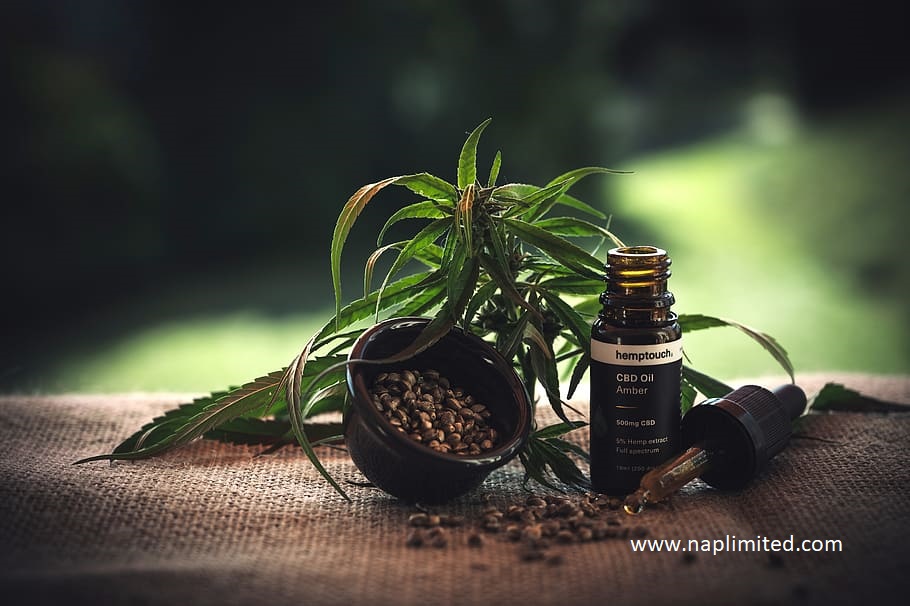Cannabis sativa, sometimes referred to as hemp in science, is a multipurpose plant that has been domesticated and utilized by humans for thousands of years. Because of its connection to marijuana, hemp is sometimes misunderstood despite having several industrial, nutritional, and environmental advantages.
Human civilizations have been enthralled by hemp for millennia since it is an alluring and useful plant. Hemp distinguishes itself as a genuinely intriguing plant with its extensive history, exceptional qualities, and limitless potential. Hemp, which is sometimes misunderstood because of its connection to marijuana, has a wide range of advantages that go far beyond recreational usage. In this article, we’ll dig into the fascinating world of hemp and examine the unusual traits, historical significance, and variety of uses that make it such a special plant.
Hemp has drawn attention for its potential to revolutionize several industries, from sustainable farming methods to its nutritional benefits, industrial uses, and environmental effects. Hemp never ceases to astound, whether you’re interested in its uses in food, building, textiles, or even its possible effects on climate change. So, let’s go out on a quest to explore hemp’s alluring features and shed light on the marvel of this extraordinary plant.
We’ll look at ten amazing facts about hemp in this article that highlight its exceptional traits and potential.
10 Interesting Facts about Hemp
Hemp as a Sustainable Superplant:
Because of its quick growth and low water, pesticide, and fertilizer needs, hemp is regarded as a sustainable superplant. Lowering soil erosion and detoxifying contaminants also contribute to better soil health. Hemp crops are very productive because they produce more cellulose, oil, and fiber per acre than other types of crops.
It has multiple industrial applications:
Hemp is amazingly adaptable. Its seeds yield wholesome food items and oil, while its fibers may be used to make textiles, paper, and building materials. Hemp fiber is an environmentally beneficial alternative to cotton since it is more robust and long-lasting.
Hemp Seeds are Powerhouses of Nutrition:
Hemp seeds are a great source of fiber, good fats, protein, and other vital elements. They contain all nine of the necessary amino acids, making them an all-inclusive source of plant-based protein. Additionally, hemp seeds are a rich source of heart-healthy omega-3 and omega-6 fatty acids.
Hemp Promotes Healthy Skin:
Hemp seed oil is well-known for its advantages in terms of skincare. It is ideal for all skin types because it is non-comedogenic, which means it won’t clog pores. Hemp oil aids in soothing and moisturizing the skin, which lowers inflammation and enhances the general health of the skin. Additionally, it is employed in the creation of sustainable and green skincare products.
Hemp Fiber is Great for Textiles:
Hemp fiber is excellent for textile manufacturing. Textiles have been made from hemp fiber for millennia. It doesn’t require severe chemical treatments because it naturally resists mould, UV radiation, and pests. Hemp clothing is breathable, strong, and hypoallergenic, making it a great option for shoppers who care about the environment.
Hemp Can Help Combat Climate Change:
Hemp Can Fight Climate Change: Hemp plants effectively act as carbon sinks by absorbing significant amounts of carbon dioxide (CO2) from the environment as they develop. Hemp is an environmentally benign crop that can slow climate change due to its capacity to store carbon and its quick pace of development.
Hempcrete: An Eco-Friendly Building Material:
Traditional construction materials may be replaced with hempcrete, a sustainable alternative made of hemp fibers, lime, and water. It has great thermal and acoustic insulation qualities, is lightweight, and is fireproof. As a greener and more energy-efficient material, hempcrete is becoming more and more well-liked in the building sector.
Hemp is different from Marijuana:
Although they both belong to the Cannabis sativa plant family, hemp and marijuana differ from one another in terms of their chemical makeup. Tetrahydrocannabinol (THC), the psychoactive substance that gives marijuana its “high,” is present in extremely small amounts in hemp. Hemp is often regarded as cannabis, with a THC value of less than 0.3%.
Hemp Cultivation is Legal in Many Countries:
Due to its lack of intoxicating properties and multiple industrial uses, hemp production and growing have become legal in many nations. Farmers and businesspeople now have more options to investigate the potential of hemp-based sectors, such as textiles, food goods, and cosmetics.
Hemp’s Historical Significance:
Historical Importance of Hemp: Hemp has been used by humans for thousands of years. It has been used in the manufacture of paper and rope, and even as a medicinal herb. Hemp was cultivated by historical personalities, including George Washington and Thomas Jefferson. Knowing the background clarifies misconceptions and emphasizes the significance of hemp in our past and present.
Conclusion
In conclusion, hemp is a fascinating and amazing plant with a lot of promise for the environment and many other sectors. It is a plant that is worth investigating and making the most of to the fullest because of its adaptability, sustainability, and nutritional value. From its historical significance to its contemporary uses, hemp continues to pique our interest and spur innovation in a variety of fields, including textiles, building, nutrition, cosmetics, and more.
We must clarify myths about hemp and understand how it differs from marijuana as we move forward. We can realize hemp’s full potential and make use of its advantages by adopting ethical farming and research, which will also help create a future that is more ecologically friendly and sustainable.
Let’s acknowledge the wonders of hemp and all it has done for human civilization over time. Let’s embrace this plant’s potential to revolutionize the industry, enhance our well-being, and make the planet greener as we continue to study and use it. Hemp has many benefits, and there will be much more to learn about and appreciate in the years to come.


Pingback: 10 Interesting Facts about Hemp | Cannabis in S...
Pingback: NAP Limited - Hemp: Expectations vs. Reality